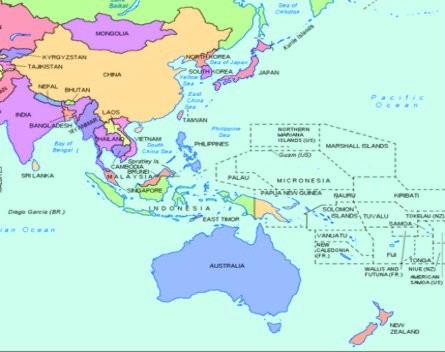Tips and tricks for expanding into new Asian markets – StartupSmart

With so much talk about the ‘Asian century’, any start-up with big ambitions should think about being ‘Asia-capable’. Australian exports to Asia are almost triple the value of exports to the rest of the world, with huge potential to grow further. But where do you start?
Having spent time managing businesses across the Asia-Pacific, I can safely say that before you look to enter a different market, you need to know exactly what you want to achieve. All the different markets of Asia have their own attractions.
Hong Kong is a gateway to Greater China, and is regularly among the leading markets in the world in ‘ease of doing business’ surveys.
Singapore often tops those same surveys. With its excellent infrastructure and telecoms, reassuring legal environment, and English-speaking population, many companies use it as a regional base to cover other Asian markets.
Yet business-friendliness also creates drawbacks: Singapore and Hong Kong are competitive – even saturated – markets, and business costs such as premises and wages can be high.
Indonesia, the Philippines and India are up-and-coming economic powerhouses, with lower business costs, and vast opportunities in sectors from infrastructure to services. Moreover, Indonesia is Australia’s closest neighbour in south-east Asia. But their regulatory and business environments are not always easy to navigate, and you will probably need a helping hand from local partners and providers.
With all those markets – developing or emerging – there are ways to increase your chances of success.
1. Be prepared to customise
Asian consumers value localised products, so you must be willing to adapt products and services to individual markets. Local market research is essential.
2. You need inside knowledge
Hire or partner with people with strong local experience, contacts and language skills. Forming business relationships in south-east Asia is a slow-burning process – you’ll need to visit these markets regularly.
3. Leverage existing networks
From Austrade and local trade bodies like InvestHK or Singapore’s Enterprise Development Board, there is a wealth of support already in most Asian countries. These organisations can offer market advice, introductions to local contacts and recommendations for professional services such as lawyers and accountants, and also help you navigate bureaucracy and business etiquette.
This will help you enter a market more quickly, prevent mistakes and free up management time. For example, SMEs that use Regus’ extensive network of business centres across south-east Asia save themselves the expense and stress of finding and leasing an office and dealing with all the paperwork and legal contracts involved in that.
4. Stay flexible
The challenges of Asia – from consumer preferences to red tape to the length of time it takes to form strong business relationships – require you to be adaptable. You’ll need flexible arrangements for premises and staffing that will allow you to upscale, downsize or change plans, all the time keeping down expenses. Don’t commit yourself to inflexible long-term leases or other arrangements or high upfront costs.
Targeting south-east Asia is not a stroll in the park, but don’t be put off by the fact it’s not just an extension of home. There are amazing opportunities to increase revenues and customers and to become a player in the Asian century – even for a start-up.
Paul Migliorini is CEO, Australia and New Zealand, for global workplace provider Regus.

